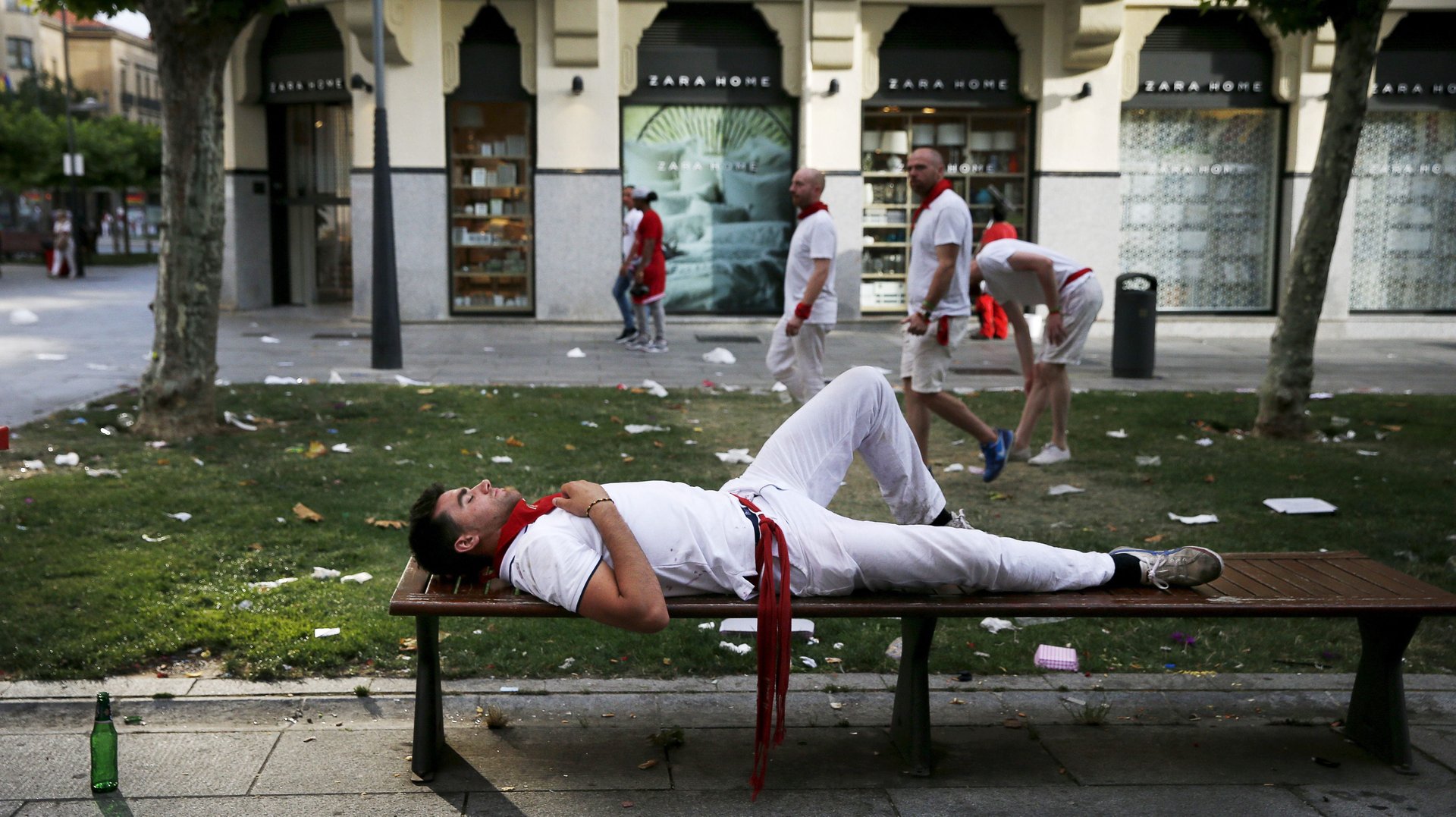The “I’d prefer not” mindset can teach overachievers that success means doing less
These days, when I think about failure, I think about a quote from my favorite Herman Melville story, Bartleby, the Scrivener. Published in 1853, the story concerns Bartleby, a law clerk who’s been hired by a Wall Street lawyer. At first, he works really hard. He crushes it, as Silicon Valley evangelists would say today.


These days, when I think about failure, I think about a quote from my favorite Herman Melville story, Bartleby, the Scrivener. Published in 1853, the story concerns Bartleby, a law clerk who’s been hired by a Wall Street lawyer. At first, he works really hard. He crushes it, as Silicon Valley evangelists would say today.
Then, suddenly, Bartleby refuses to do anything he’s asked to. He won’t even make a copy. Instead, he simply replies, “I would prefer not to.” Bartleby gets moved to a new office, then to prison, where he dies.
Bartleby is a grim bastard. In his defiance, apparently unconcerned with impressing his fancy boss, he’s every high-achiever’s worst nightmare.
He’s also the alter ego I’ve aspired to since reading the story at age 15. Desperate to get an “A” on my honors English essay, I clearly didn’t get the point of Melville’s anti-establishmentarianism.
And yet, the story is seared in my memory. Throughout my education and my career, first at a hedge fund and then as a journalist, I’ve repeatedly asked myself: What if I just said no? What if I just stopped?
Nah, I reply, my success addiction catching me. I rarely (if ever) slow down.
Until one day this past summer. Jogging in Brooklyn’s Prospect Park one steamy August morning, I felt my body depleting. I’d been running for 10 minutes but was already exhausted. I’d been working all hours on a project I had developed for Quartz. Part-time, I’d been scheduling as many networking chats as possible, plotting my next career move. I’d also been caring for my sick pug and sick grandparents while riding the waves of an emotional breakup and new romance.
Needless to say, at 6 am that Wednesday, I didn’t need to be running. My body was saying no. But that nagging urge—to do more, be more—kept boiling.
You need to stay fit, it told me. Your jeans are getting tight.
Exercising is self-care, it self- corrected.
This push-and-pull consumed my thoughts until an old man with a gray beard nearly ran me over. In Prospect Park, everyone on the running path circulates in the same direction, a spandex-clad herd fueled by one another’s productivity.
The bearded man didn’t give a shit. He was running in the opposite direction at a swift pace, weaving through runners who looked half his age. I didn’t see him because I was looking down at my phone.
“WAKE UP,” he shouted, his baritone cutting through the music piped into my earphones.
I looked up, just quickly enough to catch a glimpse of his t-shirt. It read, in bold white letters, “I’d prefer not to.”
While a beautiful coincidence for sure, this incident didn’t tectonically shift my approach to work, relationships, and success. That’s not how life works.
It did, however, wake me up.
I’d always been trained to believe that doing “enough” is bad, and “slowing down” means failure. But running faster doesn’t give you more energy. It doesn’t make you happier, either. Because when your motivation is fear of failure—demarcated by standards you didn’t set, and goalposts you’ll always move—success of any form—a quiet Sunday morning, a mile run unbridled, or even a big promotion—becomes ephemeral.
Failure, I’ve come to learn, is to be overwhelmed, unhappy, and unfulfilled. Which means that success, quite simply, means peace. To achieve peace, we don’t need to step off the treadmill. But we do need to slow it down. To leave situations, jobs, and relationships that cause us pain, or feel too heavy. To do less.
In making like Bartleby and occasionally stating, “I’d prefer not,” we do no spite to ourselves, or others—quite the opposite. In doing less, we preserve energy for what matters, a measure we can only set for ourselves.
This essay was originally published in Middlebury Magazine, and has been lightly adapted for Quartz.